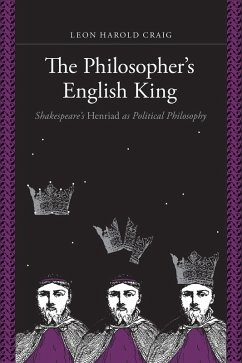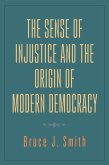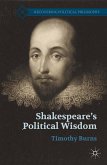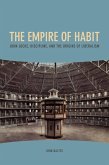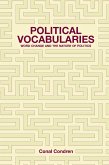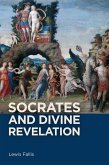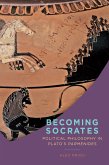The Philosopher's English King offers a close reading of the Henriad, presenting Shakespeare's teaching on political authority and contributing to the burgeoning scholarship on Shakespeare as a political thinker.
This book on Shakespeare's Henriad studies the tetralogy as a work of political thought. Leon Harold Craig, author of two previous volumes on Shakespeare's political thought, argues that the four plays present Shakespeare'steaching on the problem of legitimacy, or who has the right to rule -- one of the perennial questions of political philosophy. Offering original interpretations of each of the plays, Craig discusses the demise of divine right inRichard II, political upheaval and disputed rule in Henry IV, Parts 1 and 2, and the attempt to reestablish legitimacy on a new basis in Henry V. While focusing especially on the plays' various interpretive puzzles,Craig shows how the four plays constitute one narrative, culminating in the rule of England's most famous warrior king, Henry V, whose brilliant achievements were undone by ill fortune. Craig concludes with an epilogue on what might have been had Henry lived to consolidate his conquest of France and unify it with England under a single crown. Supported by a wealth of scholarship, both historical and critical, The Philosopher's English King makes a major contribution to the burgeoning scholarship on Shakespeare as a political thinker, providing further evidence for why the poet deserves to be recognized as a philosopher in his own right.
Leon Harold Craig is professor emeritus of political science at the University of Alberta.
This book on Shakespeare's Henriad studies the tetralogy as a work of political thought. Leon Harold Craig, author of two previous volumes on Shakespeare's political thought, argues that the four plays present Shakespeare'steaching on the problem of legitimacy, or who has the right to rule -- one of the perennial questions of political philosophy. Offering original interpretations of each of the plays, Craig discusses the demise of divine right inRichard II, political upheaval and disputed rule in Henry IV, Parts 1 and 2, and the attempt to reestablish legitimacy on a new basis in Henry V. While focusing especially on the plays' various interpretive puzzles,Craig shows how the four plays constitute one narrative, culminating in the rule of England's most famous warrior king, Henry V, whose brilliant achievements were undone by ill fortune. Craig concludes with an epilogue on what might have been had Henry lived to consolidate his conquest of France and unify it with England under a single crown. Supported by a wealth of scholarship, both historical and critical, The Philosopher's English King makes a major contribution to the burgeoning scholarship on Shakespeare as a political thinker, providing further evidence for why the poet deserves to be recognized as a philosopher in his own right.
Leon Harold Craig is professor emeritus of political science at the University of Alberta.
Dieser Download kann aus rechtlichen Gründen nur mit Rechnungsadresse in A, D ausgeliefert werden.

